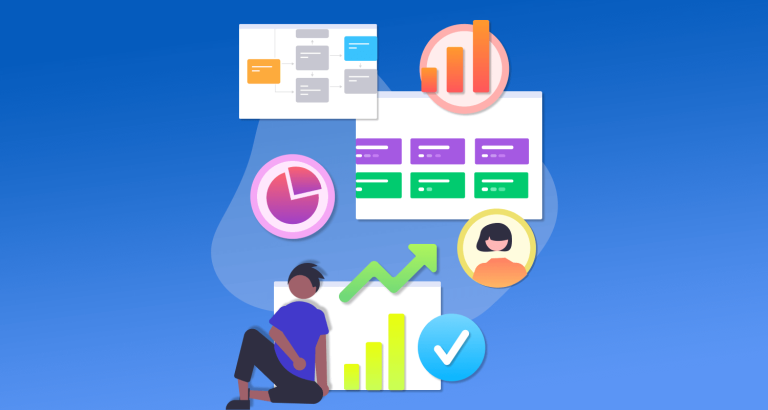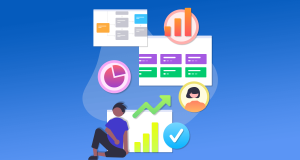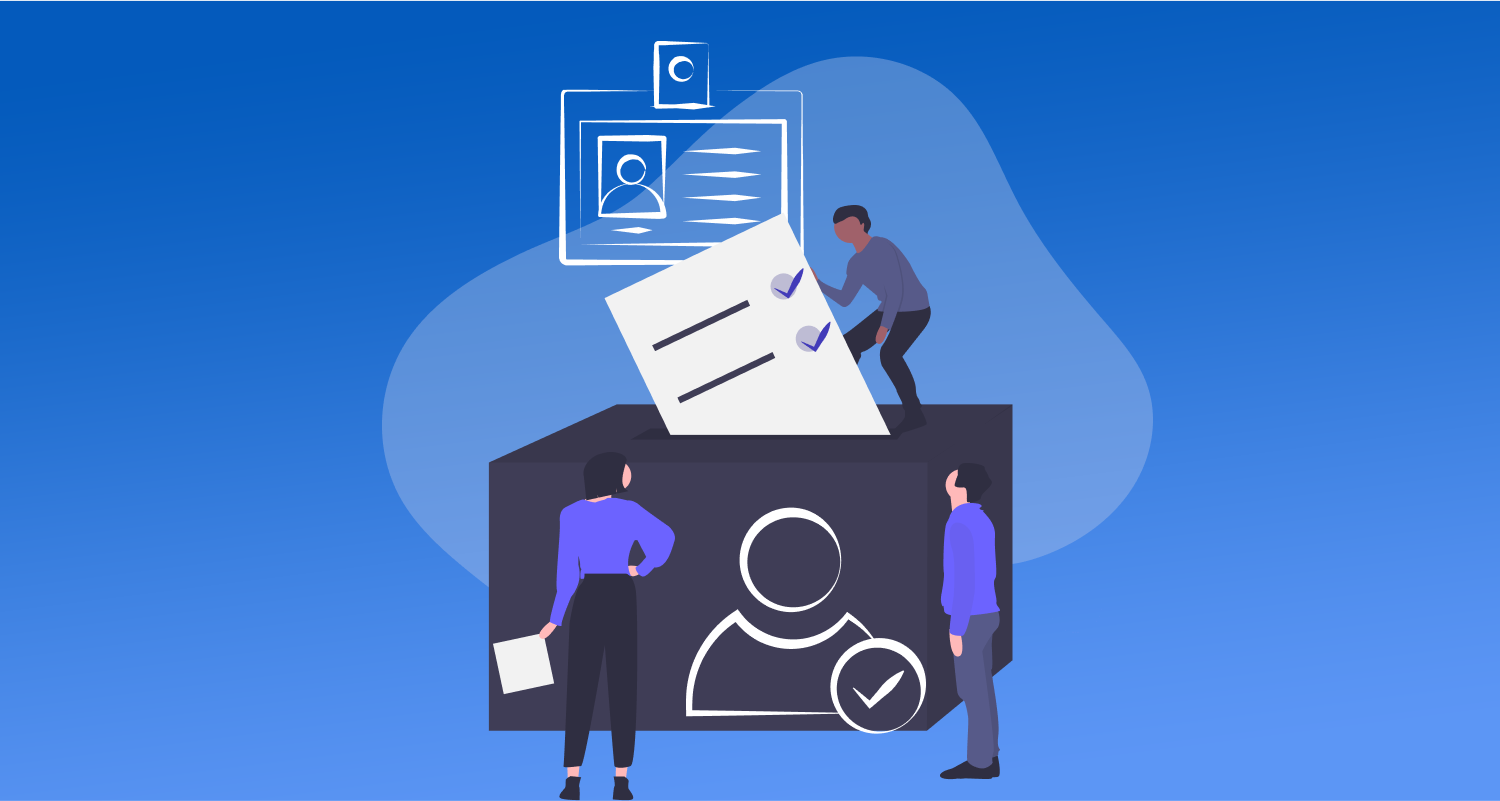Data Governance Unlocked: 6 Best Practices for Optimal Results


Share this article

Imagine this: your organization has accumulated an enormous amount of data, and you’re slowly starting to realize that without proper management, all that data may be of no use. In fact, it could even be more of a liability—instead of being an asset as it should be.
You see, data could just be a byproduct of business operations. But it could also be a strategic asset that could drive innovation, enhance customer experiences, and deliver competitive advantage. It all depends on how it’s utilized.
This is why setting procedures, benchmarks, and guidelines for data management is key. Well, there’s actually a name for this. It’s called data governance. In this day and age, where data can make or break a business, companies of all sizes and sectors are investing in data governance.
In this article, we will discuss what data governance entails and also educate you on the six best practices. So, let’s dive into it.
You see, data could just be a byproduct of business operations. But it could also be a strategic asset that could drive innovation, enhance customer experiences, and deliver competitive advantage. It all depends on how it’s utilized.
This is why setting procedures, benchmarks, and guidelines for data management is key. Well, there’s actually a name for this. It’s called data governance. In this day and age, where data can make or break a business, companies of all sizes and sectors are investing in data governance.
In this article, we will discuss what data governance entails and also educate you on the six best practices. So, let’s dive into it.
What Is Data Governance?
In simple terms, data governance is the approach to managing data in a well-thought-out way. It involves establishing policies, standards, and guidelines for data management at every stage of the data’s journey—from acquisition to disposal. To implement an effective data governance strategy, defining roles and responsibilities and taking reasonable steps to secure data are crucial steps. But wait, there’s more to it.
Inspired by Google, the big daddy of all the data in this world, here are some objectives you should set while implementing data governance:

Inspired by Google, the big daddy of all the data in this world, here are some objectives you should set while implementing data governance:

- Security: Having a lot of data is like wearing a lot of gold jewelry in a shady neighborhood—someone could try to steal it. This is why security must be paramount in any data governance program to prevent unauthorized access, breaches, or misuse. You could establish security controls, encryption protocols, access management, and monitoring systems to keep your data safe.
- Privacy: Somewhere in the vast sea of data, there lies information that should be kept private. This is why privacy regulations are critical in data governance. For example, in hospital records, only designated individuals like doctors or nurses should have access to an individual’s health history.
- Accuracy: You know what’s worse than no data? Inaccurate data. Using data validation, cleansing, and normalization techniques, companies can remove duplicates and errors from their data pool. Remember, high-quality and accurate information is essential to make the right decisions. Don’t be fooled by data errors and inconsistencies.
- Availability: Readily available data is useful data. You don’t want authorized people to jump through a lot of bureaucratic hoops to access data. If you want to make your operations more efficient and ensure timely decision-making, make sure you create the right policies for data access.
- Usability: Having a lot of valuable data wouldn’t help you if it’s not usable. A very important aspect of data governance is to ensure that data is in a format that is understandable and usable by the intended users.
KEY TAKEAWAYS
- Data governance involves managing data in a well-thought-out way by establishing policies, standards, and guidelines for data management.
6 Data Governance Best Practices
Now that you know what data governance is and how it can be useful, let’s dive into the best practices. Keep in mind that this is not an exhaustive list and you’re encouraged to add or remove items by considering your company’s circumstances.
Here’s an example. Suppose Pizza Hut is aiming to create a new range of pizzas to sell. In this case, they could maintain an accurate and up-to-date record of pizza sales to figure out which pizzas sell the most. Then, they could create similar pizzas with a different twist.
For instance, data stewards can be tasked with overseeing the quality, integrity, and governance of specific data domains. Similarly, a data custodian can be hired to focus on the technical aspects of data governance.
For example, an e-commerce company that depends on accurate and complete customer data can implement robust data profiling, cleansing, and validation processes to confirm all data is free from errors or duplicates.
For example, if you run a tech company, you could create a program to encourage employees to actively report data quality issues they encounter. You should also enable them to provide suggestions for improvement. Furthermore, you could create a reward program for team members who consistently contribute to data enhancement efforts.
Well, look no further. Here at Consultport, we have the most talented data governance consultants and cybersecurity consultants in our network. Whether it’s cloud security or data encryption, freelance consultants on our platform are well-versed in all things data.
The process of hiring a consultant through Consultport is simple:
1. Set the right foundation
First things first, you should know why exactly you need data governance and what you are trying to get out of it. Every company gets into data governance for its own unique reasons—what are your reasons? This means that you should clearly define the outcomes you want to achieve with data governance, and also ensure that they align with your overall business strategy.Here’s an example. Suppose Pizza Hut is aiming to create a new range of pizzas to sell. In this case, they could maintain an accurate and up-to-date record of pizza sales to figure out which pizzas sell the most. Then, they could create similar pizzas with a different twist.
2. Set roles and responsibilities
Remember this: data governance is a team sport. You should ideally create a team that’s dedicated to data governance. Assigning different roles and tasks to specific individuals ensures clear accountability and ownership of data-related activities.For instance, data stewards can be tasked with overseeing the quality, integrity, and governance of specific data domains. Similarly, a data custodian can be hired to focus on the technical aspects of data governance.
3. Keep data quality high
If you take data governance seriously, you should put in place proactive measures for data profiling, cleansing, validation, and real-time monitoring. These tasks can help you with your data accuracy and completeness. The best part is that all of this can be automated with the right tools. Imagine having automated data quality checks that act as watchdogs that swiftly flag and correct any inconsistencies during data entry. Furthermore, regular data audits can be your secret weapon in detecting and fixing any lurking data quality issues.For example, an e-commerce company that depends on accurate and complete customer data can implement robust data profiling, cleansing, and validation processes to confirm all data is free from errors or duplicates.
4. Invest in data governance tools
Since we’re talking about data governance, how can we not discuss digital tools and data management platforms? By investing in state-of-the-art data governance tools, you could unlock a whole new world of opportunities. Picture this: you have cutting-edge tools that effortlessly handle data profiling, metadata management, data lineage, and data cataloging. How convenient would that be? Some examples of the best data governance tools are as follows:- Alation: Alation is a renowned data cataloging and collaboration platform. This tool facilitates data governance efforts by providing a centralized inventory of data assets, their definitions, and usage information.
- SAP Data Intelligence Cloud: If you’re looking for data cataloging, metadata management, and data integration capabilities in one platform, visit SAP’s website to check out their tools.
- Axon Data Governance: Axon is a handy tool by Informatica. Need help understanding, managing, and governing data assets? Axon can provide a centralized view of data definitions, business terms, and data relationships. Give it a try.
- Collibra: “Do more with trusted data”—that’s the slogan of Collibra. Big companies like Heineken, L’oréal, and Cambia use Collibra for their data governance. So, if you were to invest in this highly beneficial platform, you’d be in good company.
5. Create a culture of data governance
You should strive to nurture a culture where data governance is the norm and is woven into the fabric of everyday practices. To achieve this, you should encourage open communication, a sense of collaboration, and sharing of insights to enhance data quality and governance. Furthermore, you should recognize and reward data governance champions—the team members who go above and beyond to ensure the accuracy, security, and privacy of data. This will motivate others to take data governance seriously, too.For example, if you run a tech company, you could create a program to encourage employees to actively report data quality issues they encounter. You should also enable them to provide suggestions for improvement. Furthermore, you could create a reward program for team members who consistently contribute to data enhancement efforts.
6. Hire data governance consultants
If you’re in a company that lacks experience in data governance or has challenging and complex data-related problems, then you should certainly hire a freelance data governance consultant. These consultants, who are available on a freelance basis, play a crucial role in helping companies establish effective data governance practices. Here’s what consultants can do to take your data governance to new heights:- Data operating model: Consultants can develop processes for data inflow, cleansing, and enrichment, enabling in-depth analysis.
- Online legal coaching: They can educate employees on data sensitivity and keep them updated on the latest regulatory developments.
- GDPR assurance service: Finally, they can train you to be in compliance with the newest regulatory changes to avoid punitive charges.
Well, look no further. Here at Consultport, we have the most talented data governance consultants and cybersecurity consultants in our network. Whether it’s cloud security or data encryption, freelance consultants on our platform are well-versed in all things data.
The process of hiring a consultant through Consultport is simple:
- Speak with a Consultport representative and state your needs.
- Choose your favorite consultant from the list.
- Start the project.
Share this article
Premium content,
on a weekly basis.
on a weekly basis.
Subscription implies consent to our privacy policy.
×
Subscribe to our newsletters!
Discover our Consultant's Expertise
Ready to get access to the world’s best consultants?
